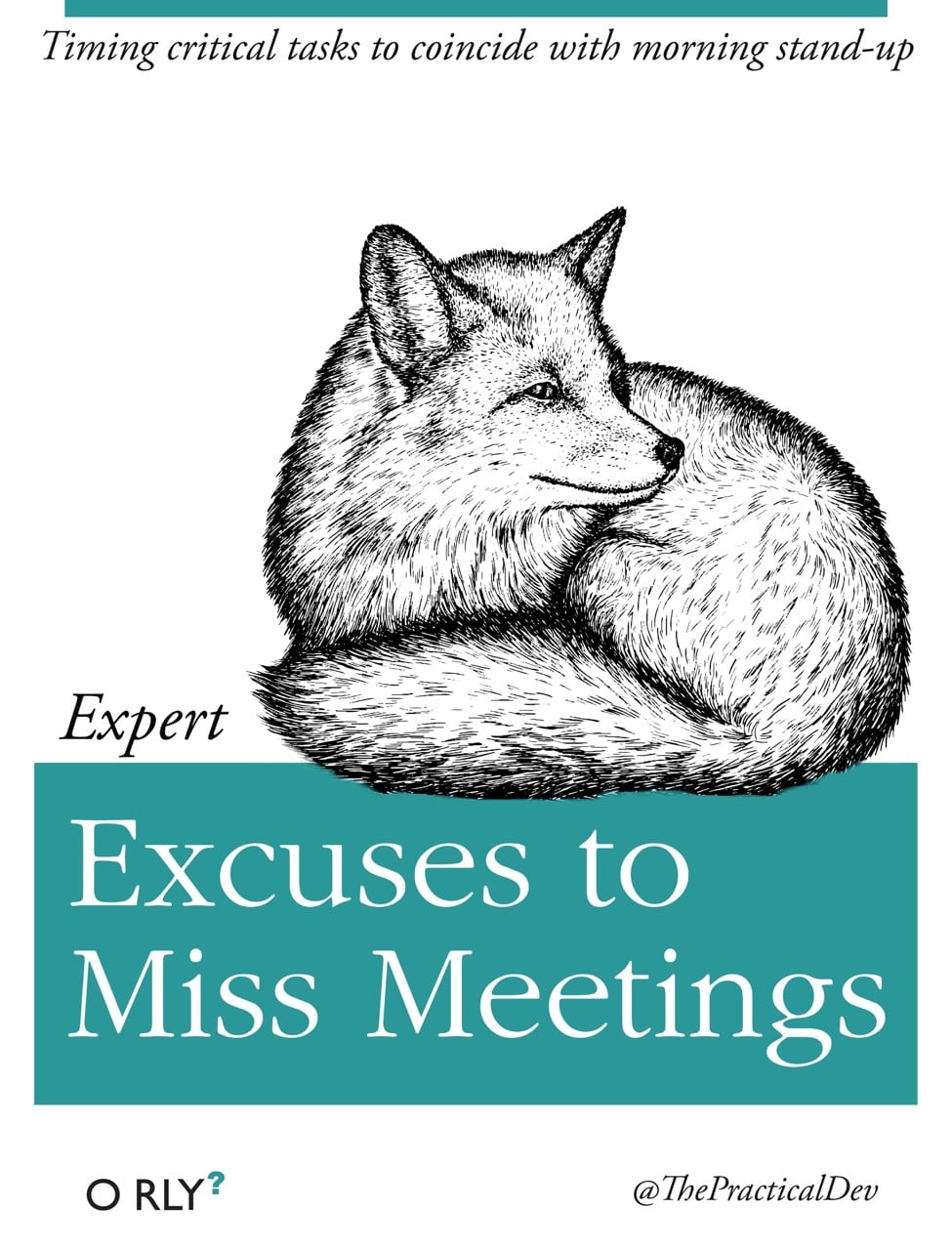
In the bustling realm of Corporatia, a land where time is as precious as the rarest gem and the calendar is a tapestry of commitments, there existed an art form both subtle and complex, known to its practitioners as "Excuses to Miss Meetings." This delicate dance of diplomacy and strategy was especially prevalent among the inhabitants of TechVille, a vibrant community within Corporatia renowned for its innovations and its relentless meeting schedule.
At the heart of this tale is Taylor, a developer of great renown and skill, whose prowess in coding was matched only by their ability to navigate the labyrinthine world of corporate meetings. Taylor, like many in TechVille, found themselves ensnared in a seemingly endless cycle of stand-ups, sync-ups, and sit-downs, each meeting blurring into the next until the days stretched thin, and productivity seemed a distant dream.
Driven by a longing for uninterrupted hours of deep work, Taylor embarked on a quest to master the art of "Timing Critical Tasks to Coincide with Morning Stand-Up," a strategy as audacious as it was effective. This technique, documented in the scrolls of TechVille's great library, involved the careful alignment of one's most crucial tasks with the exact timing of the dreaded morning stand-up, thereby rendering attendance not just unnecessary but, indeed, counterproductive.
Armed with this knowledge, Taylor set about crafting their schedule with the precision of a master clockmaker. They mapped out their week, identifying the tasks that demanded the utmost focus and creativity, and aligned these endeavors with the timing of the stand-up meetings. To the untrained eye, Taylor's calendar was a mere list of commitments and deadlines; but to those versed in the art of meeting avoidance, it was a masterpiece of strategic planning.
When the hour of the stand-up approached, Taylor was invariably deep in the throes of solving critical issues or embarking on tasks of paramount importance. Colleagues who sought Taylor's presence at these gatherings were met with polite but firm reminders of the pressing work at hand, work that, if left unattended, could spell disaster for the project at large.
"Sorry, I'm in the middle of a crucial code merge," or "I can't afford to step away from this bug fix; it's critical to our release," became Taylor's refrains, each excuse delivered with the solemnity of one bearing the weight of the project's success on their shoulders.
The tale of Taylor's ingenious strategy spread throughout TechVille, inspiring others to reevaluate their own schedules and priorities. Discussions abounded on the true value of meetings versus the need for deep, focused work. Slowly but surely, the culture within TechVille began to shift, with team leads and managers alike recognizing the merit of guarding their team's time against the incessant tide of meetings.
"Excuses to Miss Meetings: Timing Critical Tasks to Coincide with Morning Stand-Up" became a legend in Corporatia, a testament to the ingenuity of its people and the lengths to which they would go to reclaim their time and productivity. It served as a reminder that, in the quest for efficiency and innovation, sometimes the most effective action is not to meet but to do.